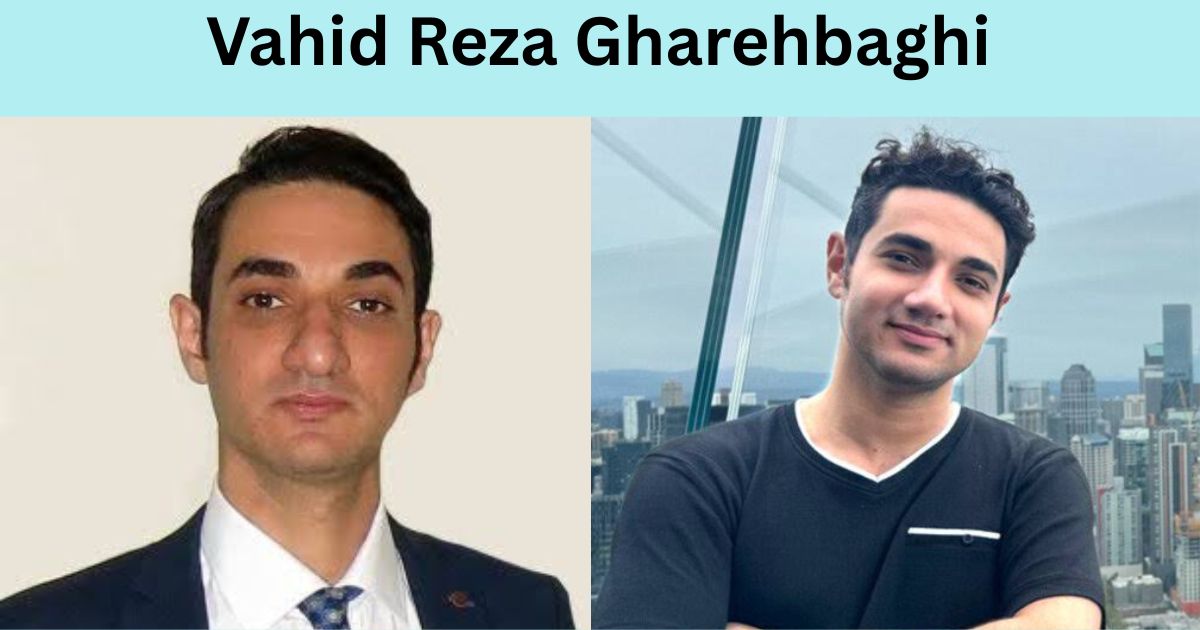Vahid Reza Gharehbaghi is a name that resonates across academic, technological, and research communities for his significant contributions to engineering, innovation, and interdisciplinary development. Known for his work in civil engineering, water resources, and environmental sustainability, Gharehbaghi’s career stands as a testament to rigorous scholarship, practical application, and forward-thinking solutions in addressing complex real-world problems.
This article delves into his academic background, professional contributions, research interests, and broader influence in both academic and applied sectors.
Academic Background and Early Life
Vahid Reza Gharehbaghi holds a distinguished academic portfolio. He began his journey in engineering with a strong focus on civil infrastructure and advanced technologies. He pursued undergraduate and graduate studies in Iran, where he laid the foundation for his future academic path. His early academic interest revolved around hydraulic structures, urban planning, and environmental concerns associated with water resource management.
Later, Gharehbaghi expanded his expertise through international academic exposure, where he engaged in doctoral-level research and postdoctoral studies. His education is characterized by an interdisciplinary approach that blends theoretical knowledge with practical solutions.
Research Interests and Areas of Expertise
Vahid Reza Gharehbaghi is widely respected for his contributions in the following areas:
1. Water Resource Management
Gharehbaghi has extensively worked on optimizing the use and distribution of water resources, especially in arid and semi-arid regions. His work often addresses key challenges like water scarcity, urban consumption, and agricultural efficiency.
His research often incorporates:
- Hydrological modeling
- Urban water system design
- Irrigation optimization
- Flood risk assessment
- Sustainable drainage systems
2. Civil and Environmental Engineering
From urban development to sustainable infrastructure, Gharehbaghi’s work intersects with many core issues in civil and environmental engineering. He is known for proposing resilient infrastructure strategies, including materials testing, risk mitigation, and systems integration.
3. Sustainability and Smart Cities
Another core area of his work involves the development of sustainable technologies and smart city applications. He emphasizes integrating artificial intelligence, IoT (Internet of Things), and environmental modeling to create data-driven urban systems that can respond to real-time challenges.
Publications and Scholarly Contributions
Vahid Reza Gharehbaghi has authored and co-authored numerous scholarly articles published in high-impact journals. His papers often cover:
- Climate change and its implications on water systems
- Urban sustainability indicators
- Infrastructure resilience in the face of environmental stressors
- Machine learning in hydrology
His research is widely cited, demonstrating the relevance and quality of his work in both theoretical and applied domains.
Key Publications
Some of his standout publications include:
- “Optimizing Urban Water Distribution Using AI-Based Models”
- “Hydrological Modeling for Semi-Arid Regions under Climate Variability”
- “Green Infrastructure Planning for Sustainable Urban Growth”
These studies have been praised for combining engineering precision with a holistic understanding of environmental systems.
Teaching and Mentorship
As a professor and academic supervisor, Vahid Reza Gharehbaghi is deeply committed to education. He has mentored numerous graduate and postgraduate students, guiding them in research, publication, and thesis development. His approach encourages critical thinking, independent research, and innovation.
He is often involved in curriculum development, workshops, and international seminars. Many of his students have gone on to hold academic and professional positions across the globe.
International Collaborations and Projects
Gharehbaghi has participated in numerous international collaborations with universities and research institutions across Europe, Asia, and the Middle East. These projects often focus on water resource optimization, sustainable agriculture, and urban infrastructure design.
Through these collaborations, he has played an instrumental role in:
- Cross-border water management programs
- Joint environmental monitoring projects
- Academic exchange programs
- UN-aligned sustainable development initiatives
These collaborations have significantly amplified the global impact of his work.
Awards and Recognition
Over the years, Vahid Reza Gharehbaghi has received multiple awards for his academic excellence and practical contributions. These honors reflect his dedication to making a real difference in both academic and public policy spheres.
Notable recognitions include:
- Best Researcher Award in Environmental Engineering
- Excellence in Teaching and Mentorship
- Contribution to International Sustainable Infrastructure Development
His peers and students alike recognize him as a thought leader who bridges science with socially relevant applications.
Influence on Public Policy and Development
Beyond the academic world, Gharehbaghi’s work has influenced public policies, particularly in the areas of:
- Urban planning and environmental law
- Water conservation regulations
- Infrastructure standards and building codes
Many of his findings have informed guidelines for environmental agencies, municipal governments, and international development bodies. His ability to translate complex engineering challenges into actionable policies makes his work highly influential.
Challenges and Forward Vision
In the context of increasing climate change challenges and global urbanization, Vahid Reza Gharehbaghi continues to advocate for data-driven, equitable solutions. He actively participates in conferences and publishes updated research on:
- Climate-resilient cities
- Smart resource allocation
- Ethical dimensions of environmental engineering
Looking ahead, Gharehbaghi’s vision emphasizes blending traditional engineering values with cutting-edge technology. He believes that interdisciplinary approaches, rooted in ethics and sustainability, are essential for the next generation of engineers and policymakers.
Personal Ethos and Legacy
Beyond his technical expertise, Gharehbaghi is admired for his humility, curiosity, and commitment to societal good. He encourages lifelong learning and embodies the principles of academic integrity, collaboration, and community service.
His legacy lies in empowering future engineers and environmentalists to think globally, act locally, and innovate responsibly.
Final Thoughts
Vahid Reza Gharehbaghi is not just an academic or researcher—he is a visionary leader in environmental engineering and water resource management. His ability to synthesize research, education, and practical policy into a cohesive and impactful body of work makes him a standout figure in the field.
His contributions serve as a blueprint for how scholarly excellence can intersect with global challenges to drive meaningful change. Whether through his groundbreaking research, inspiring mentorship, or global collaborations, Vahid Reza Gharehbaghi continues to shape the future of sustainable development, one innovative step at a time.










